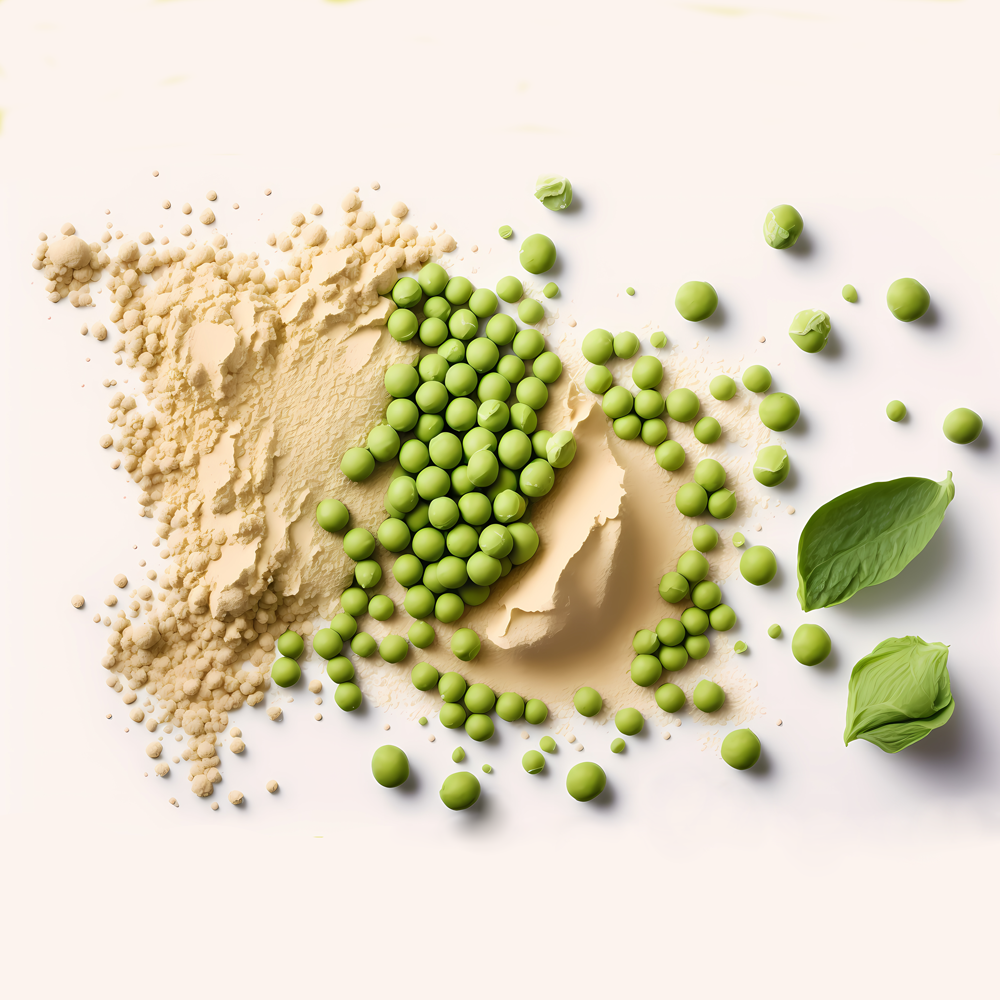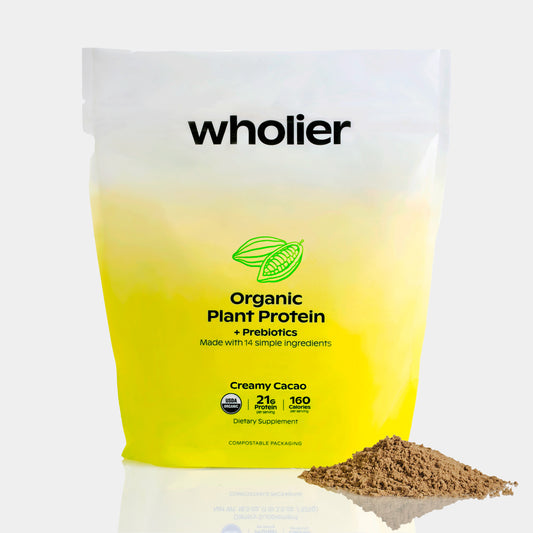
Why Do Vegan Protein Powders Make You Bloated?
Are you tired of feeling bloated after consuming your vegan protein powder? You're not alone. Many people experience bloating and digestive discomfort after using vegan protein powders, but the reasons behind this phenomenon are not always clear. This article will address the common questions regarding vegan protein powders and bloating, backed by scientific research and clinical studies. (1,2) We will also provide a list of ingredients to avoid, helping you make informed choices when selecting your protein supplement.
Why Do Vegan Protein Powders Cause Bloating?
Bloating can be caused by various factors, including the consumption of certain food ingredients that are difficult to digest. Some vegan protein powders contain these ingredients, which may lead to bloating and digestive discomfort. Let's look at some common culprits found in vegan protein powders.
1. Xanthan Gum
Xanthan gum is a common thickening agent found in many vegan protein powders. It is derived from a type of bacteria and is used to improve texture and consistency. However, xanthan gum has been shown to cause bloating and gas in some individuals.(3) This is because it can ferment in the gut, producing gas and leading to bloating.
2. Artificial Sweeteners (Like Sucralose)
Many vegan protein powders use artificial sweeteners like sucralose to reduce calories and sugar content. Unfortunately, artificial sweeteners can cause bloating and gas in some individuals.(4) This is because the body cannot fully break down and absorb these sweeteners, leading to fermentation in the gut and the production of gas.
3. Sugar Alcohols (Erythritol)
Sugar alcohols, such as erythritol, are another common ingredient used to sweeten vegan protein powders. While they provide fewer calories than sugar, they can also cause bloating and digestive discomfort in some individuals.(5) This is because sugar alcohols are not completely absorbed by the body, leading to fermentation in the gut and gas production.
4. Maltodextrin
Maltodextrin is a common additive in vegan protein powders, used to improve texture and taste. However, it has been linked to digestive issues, including bloating and gas.(6) This is because maltodextrin can be rapidly broken down into sugar in the body, causing a rapid increase in blood sugar levels and an insulin response, which can lead to bloating.
5. Artificial Flavors
Artificial flavors are often used to enhance the taste of vegan protein powders. Some individuals may experience bloating and digestive discomfort from consuming artificial flavors, as they can be difficult for the body to break down and process.(7)
6. Natural Flavors
Natural flavors can be just as problematic as artificial ones. They are often derived from various sources and can contain hidden ingredients that may cause bloating and digestive discomfort in some individuals.(8) These hidden ingredients can include allergens, which can cause bloating and other digestive issues in sensitive individuals.
7. Soy Protein
Soy protein is a common ingredient in vegan protein powders. While it is a high-quality protein source, some individuals may experience bloating and gas from consuming soy protein.(9) This is because soy contains oligosaccharides, which can be difficult for the body to break down, leading to fermentation in the gut and gas production.
8. Carrageenan
Carrageenan is a thickening agent derived from seaweed and is commonly used in vegan protein powders. Some studies have suggested that carrageenan may cause inflammation and gastrointestinal issues, including bloating and gas.(10) However, more research is needed to fully understand the relationship between carrageenan and digestive discomfort.
How Can I Choose the Right Vegan Protein Powder for Me?
Now that you know which ingredients to avoid, selecting the right vegan protein powder for you should be much easier. When looking for a suitable protein powder, make sure to read the label carefully and avoid products containing the ingredients listed above. Opt for protein powders with minimal ingredients and without artificial or natural flavors. Our Organic Plant Protein + Prebiotics is specifically formulated for those seeking a vegan, additive-free protein source. Not only is it gentle on your digestive system, but it may also enhance your overall gut health instead of causing harm.
Sources:
(1) Hoffman, J. R., & Falvo, M. J. (2004). Protein - Which is Best?. Journal of Sports Science & Medicine, 3(3), 118-130.
(2) Paddon-Jones, D., & Rasmussen, B. B. (2009). Dietary protein recommendations and the prevention of sarcopenia. Current Opinion in Clinical Nutrition & Metabolic Care, 12(1), 86-90.
(3) Gawkrodger, D. J., & Ewen, S. W. (1994). Xanthan gum: A cause of occupational asthma?. Clinical and Experimental Allergy, 24(2), 144-148.
(4) Suez, J., Korem, T., Zilberman-Schapira, G., Segal, E., & Elinav, E. (2015). Non-caloric artificial sweeteners and the microbiome: Findings and challenges. Gut Microbes, 6(2), 149-155.
(5) Mäkinen, K. K. (2016). Gastrointestinal disturbances associated with the consumption of sugar alcohols with special consideration of xylitol: Scientific review and instructions for dentists and other health-care professionals. International Journal of Dentistry, 2016, 5967907.
(6) Miles, M. J., Morris, V. J., Orford, P. D., & Ring, S. G. (1985). The roles of amylose and amylopectin in the gelation and retrogradation of starch. Carbohydrate Research, 135(2), 271-281.
(7) Swartz, T. D., & Duca, F. A. (2019). Artificial sweeteners: A systematic review and primer for gastroenterologists. Journal of Neurogastroenterology and Motility, 25(2), 168-180.
(8) Ogawa, T., & Spahn, T. W. (2017). The functional role of natural and added food components in food allergy. Clinical and Translational Allergy, 7(1), 39.
(9) Hughes, G. J., Ryan, D. J., Mukherjea, R., & Schasteen, C. S. (2011). Protein digestibility-corrected amino acid scores (PDCAAS) for soy protein isolates and concentrate: Criteria for evaluation. Journal of Agricultural and Food Chemistry, 59(23), 12707-12712.
(10) Tobacman, J. K. (2001). Review of harmful gastrointestinal effects of carrageenan in animal experiments. Environmental Health Perspectives, 109(10), 983-994.





